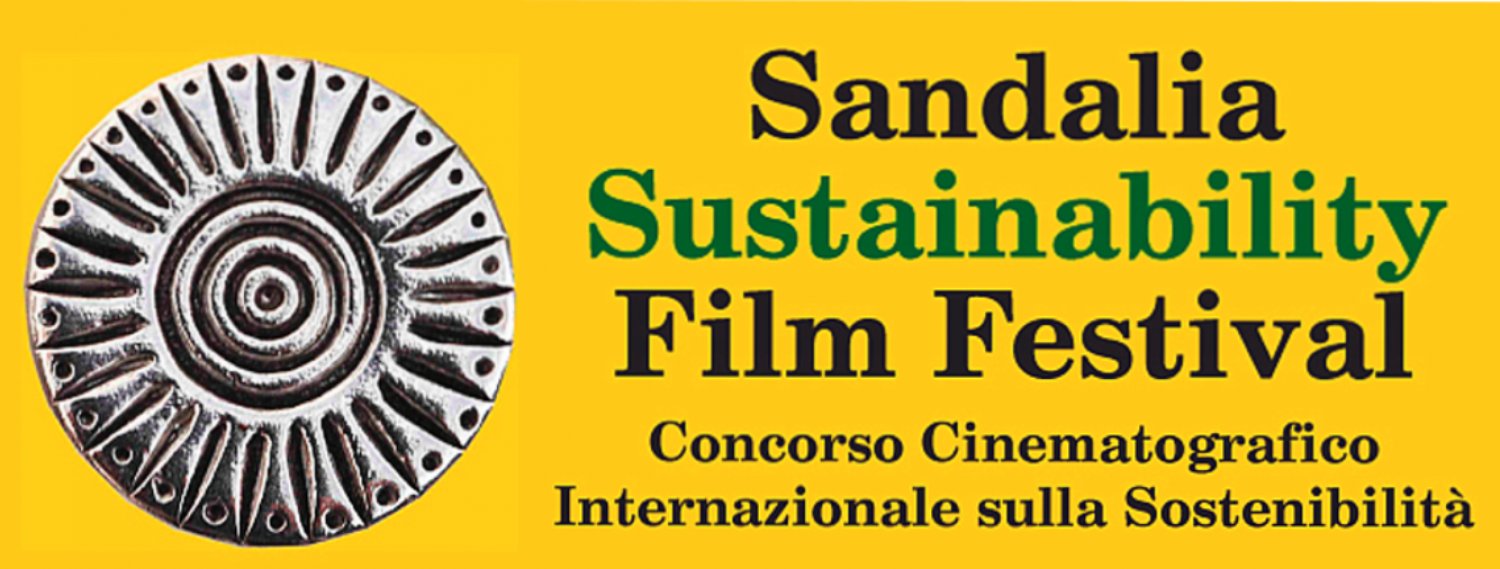


Sandalia Sustainability Film Festival Visioni itineranti su stili di vita sostenibili
Sassari, Italy
The Sandalia Sustainability Film Festival has an important role in raising people's awareness of sustainability issues through cinematographic works, offering an opportunity to exchange ideas with people from all over the world, thus promoting values, spreading knowledge and techniques. , with the aim of inducing virtuous behavior, for a sustainable present and future. We assume that the first step for the awakening of consciences is to be able to access the right information, meaning the information purified by political, economic and speculative interests, the one that also reveals the truths that are often hidden.
We think that the audio-visual medium is a very effective means to inform with emotion, to suggest new possible existential models, to envisage new solutions to problems, to connect people from all over the planet, in order to safeguard Mother Earth and for a present and a future that is dignified and happily livable for everyone.
The Festival takes place in Sardinia, and in this edition it will take place, always in itinerant form, between the end of July and the beginning of October, also involving the Schools. In the various stages will be screened all the films in competition and even some out of competition, and will propose workshops, meetings with directors, seminars, conferences, shows, markets, related to the cinema and sustainability.Art.2 THEMES
All sustainability issues are allowed, at the discretion of the proposer; it will then be the pre-selection commission to assess whether the subject of the proposed film is themed, and to assess the presence of a minimum of technical-artistic requisites to be admitted to the Competition.
The film can be a denunciation, thus showing situations that do not respect the principles of sustainability, or the enhancement of sustainable practices. Both types of films are important and allowed, as the first step towards a more sustainable world is to understand in depth all the aspects resulting from what human beings do, as individuals and as groups, and in many cases this means showing unsustainable situations, and even situations that, although they seem sustainable, are not, giving all the information necessary to make them understand why they are not.
The following list shows as an example some of the areas on which the subject of the proposed film may relate: some areas concern unsustainable practices, others are virtuous models of sustainability, and still others are generic areas in which both unsustainable and practical practices can be implemented sustainable. As already mentioned, we believe that showing unsustainable choices and actions - highlighting why they are not - is one of the steps to get to put into practice, and to demand that sustainable choices and actions be put into practice.
ENVIRONMENTAL SUSTAINABILITY
Use of the territory and resources
Indiscriminate exploitation of resources
Environmental consequences of oil extraction
Deforestation
Land-grabbing
Water-grabbing
Military servitude
Wild urbanizations
Collection and reuse of rainwater
Pollution (air, water, earth)
Waste management and consequences on the territory
Waste reduction and recovery
Sustainable landscape design
Access to natural resources
Valorisation and preservation of natural resources
etc. etc.
Agriculture and nutrition
Industrial agriculture
Monocultures to produce fuels
The poisons used in agriculture
Additives and dyes in food
Healthy foods versus less healthy foods
Awareness of what you eat
Food waste
Food choices / eating disorders
Food at km 10.000 / food at km 0
Herbs, roots and edible spontaneous fruits
Food-forest
Natural agriculture
Biological agriculture
Permaculture
Biodynamic agriculture
Agriculture and rural culture
Food sovereignty
etc. etc.
Natural systems, ecology and health
Biodiversity
Animal rights
Bioethics
Dyeing plants
Plants as fertilizers
phytoremediation
Impact of petroleum derivatives on the environment
Effects of oil derivatives on human health
The alternatives to plastic derived from oil
etc. etc.
Earth warming
Climate changes
Resource regeneration
Renewable energy sources
Energy efficiency
Energy sovereignty
Self-production of energy
Bio-construction, ecological buildings and passive houses
Sustainable mobility
SOCIAL SUSTAINABILITY
Speculative economic policies
Exploitation in the workplace
New models of societies based on equity, awareness, alternative and solidary economies
Valorization of individual differences
Resource production and distribution systems
Consumption and conscious choices
Active citizenship and participatory processes
Disurbanism and transition
Peace, nonviolence and human rights
Right to health for all
etc. etc.
Environmental Sustainability and Social Sustainability are often closely intertwined, we separately list some of their themes as an example.
However, the list is not exhaustive of all the issues concerning Sustainability.
Art.3 PARTICIPATION REQUIREMENTS AND CHARACTERISTICS OF THE WORKS
Individuals or groups of people of any age and nationality can participate.
The author can use a pseudonym or an artistic name in the titles of the work, while in all the documents sent he will necessarily have to write the personal name, indicating in brackets the pseudonym or the name of the art used.
The works admitted to the Competition, without limits of duration, are:
documentary films
fiction film
animation film
docu-fiction
mockumentary
experimental films
The submitted works may have been produced in any year, and may have already been presented in other competitions.
The works in non-Italian language must be subtitled in Italian or in English, and must be sent by e-mail, to ssff.iscrizioni@gmail.com, the list of dialogues in English or, preferably, the .srt file in English.